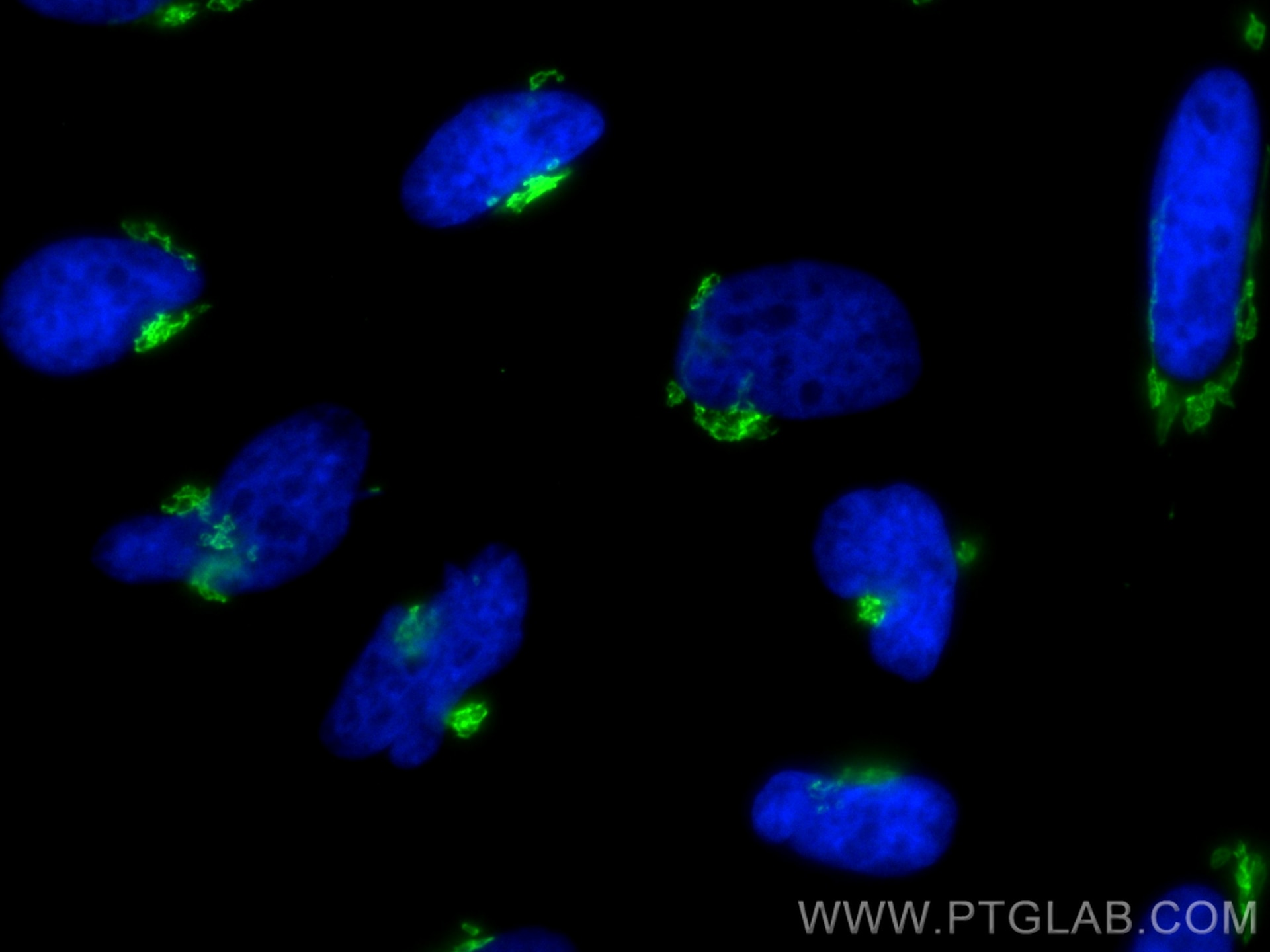Tested Applications
| Positive IF/ICC detected in | HeLa cells |
Recommended dilution
| Application | Dilution |
|---|---|
| Immunofluorescence (IF)/ICC | IF/ICC : 1:50-1:500 |
| It is recommended that this reagent should be titrated in each testing system to obtain optimal results. | |
| Sample-dependent, Check data in validation data gallery. | |
Product Information
CL488-84818-5 targets GOLIM4 in IF/ICC applications and shows reactivity with human, mouse samples.
| Tested Reactivity | human, mouse |
| Host / Isotype | Rabbit / IgG |
| Class | Recombinant |
| Type | Antibody |
| Immunogen |
CatNo: Ag34962 Product name: Recombinant human GOLIM4 protein Source: e coli.-derived, PGEX-4T Tag: GST Domain: 350-500 aa of NM_014498 Sequence: QVGQAEHLEEEHDPSPEEQDREWKEQHEQREAANLLEGHARAEVYPSAKPMIKFQSPYEEQLEQQRLAVQQVEEAQQLREHQEALHQQRLQGHLLRQQEQQQQQVAREMALQRQAELEEGRPQHQEQLRQQAHYDAMDNDIVQGAEDQGIQ Predict reactive species |
| Full Name | golgi integral membrane protein 4 |
| Calculated Molecular Weight | 82 kDa |
| Observed Molecular Weight | 130-140 kDa |
| GenBank Accession Number | NM_014498 |
| Gene Symbol | GOLIM4 |
| Gene ID (NCBI) | 27333 |
| Conjugate | CoraLite® Plus 488 Fluorescent Dye |
| Excitation/Emission Maxima Wavelengths | 493 nm / 522 nm |
| Form | Liquid |
| Purification Method | Protein A purification |
| UNIPROT ID | O00461 |
| Storage Buffer | PBS with 50% glycerol, 0.05% Proclin300, 0.5% BSA, pH 7.3. |
| Storage Conditions | Store at -20°C. Avoid exposure to light. Stable for one year after shipment. Aliquoting is unnecessary for -20oC storage. |
Background Information
Golgi integral membrane protein 4 (GOLIM4) is a 130-kDa membrane protein that is integrated into the cis/medial Golgi apparatus, which is a kind II Golgi protein. GOLIM4 is a Golgi protein that circulates between Golgi apparatus and endosomes, and its shuttle is pH sensitive(PMID:30068697).
Protocols
| Product Specific Protocols | |
|---|---|
| IF protocol for CL Plus 488 GOLIM4 antibody CL488-84818-5 | Download protocol |
| Standard Protocols | |
|---|---|
| Click here to view our Standard Protocols |




